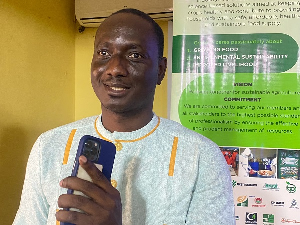The Environmental Protection Agency (EPA) has urged agro-input dealers in the Northern Region to ensure that only educated people are employed to sell their agrochemicals.
According to the EPA, persons who sell agrochemicals need to be able to read and understand the application instructions of the various agrochemicals to enable them to effectively explain their application to farmers who buy the chemicals and may not be able to read the instructions.
The EPA said the chemicals have dangerous repercussions for consumers of farm produce if they are applied wrongly, hence the need for agro-chemical sellers to properly explain the application of the chemicals to farmers before they apply them on their farms.
Joseph Edmund, a representative of the Chemicals Control and Management Centre of the EPA, who was speaking at the opening of a four-day training for agro-input dealers in the Northern Region, said there was a huge responsibility on the dealers to ensure that farmers understood how to safely apply the chemicals.
Speaking on how to identify fake pesticides, Mr. Edmund said such products were often not registered, did not have certification, and had poor labels and illegible texts, which were often in foreign languages. He added that such products also lacked critical information such as manufacturers' and distributors' addresses, expiration dates, and batch numbers.
The EPA official disclosed that as of December last year, his agency had registered and approved about 1,070 pesticides for use in the country, while 32 fake pesticides were banned from the market.
Despite the ban on these 32 fake pesticides, some of them still found their way onto the market, a situation he noted required the collective efforts of various stakeholders to ensure consumers of farm produce are not exposed to the dangers the fake products pose.
Speaking to the media, Mr. Rashad Kadiri, Programme Manager of Crop Life Ghana, said the training aimed at helping tackle issues of counterfeiting in the crop protection industry.
He said, "The crop protection industry, just like any other sector, is prone to issues of counterfeiting, and to fight this, the agro-input dealers are the first stop shop that we need to work with. At the end of it all, it's for the farmers to get good-quality inputs like pesticides, fertilizers, and seeds for us to achieve the food security we're all looking for."
The training was organized by Crop Life Ghana for members of the Ghana Agro-Input Dealers Association in the Northern Region.
Regional News of Thursday, 11 July 2024
Source: Mumuni Yunus, Contributor

















